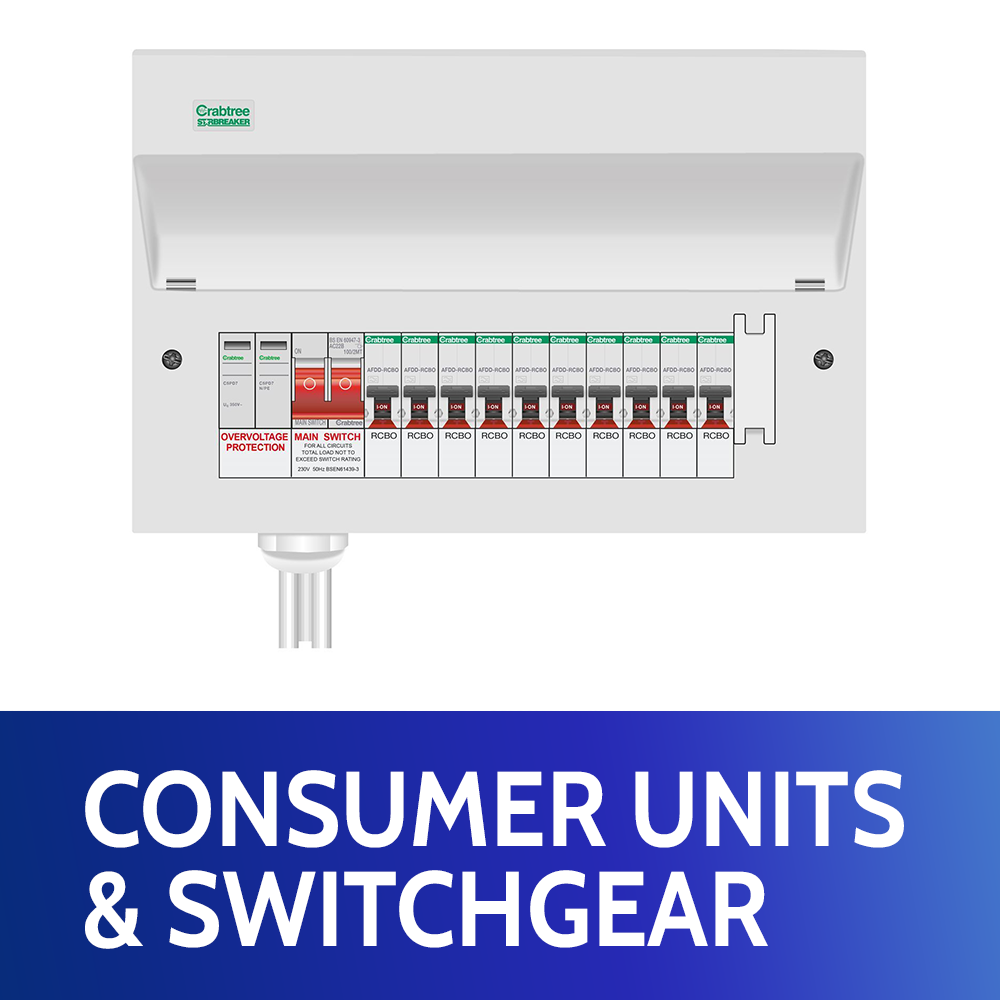Top Functions to Look for in High-Quality RCBO CONSUMER UNITS
Top Functions to Look for in High-Quality RCBO CONSUMER UNITS
Blog Article
The Role of Customer Units in Effective Power Management Systems
Customer devices are essential to effective power administration systems, offering as the primary circulation points for electric power within frameworks. The arrival of wise innovations has actually better enhanced their capability, allowing for real-time data tracking and nuanced energy usage analysis.
Comprehending Consumer Systems
-1796-p.jpg?v=293b7e83-9afe-44ed-b26f-caca2c71d6f2)
Understanding the role of customer units begins with acknowledging their important feature in safeguarding electrical systems. By separating mistakes within certain circuits, consumer devices avoid widespread outages and possible fire threats. This seclusion is attained through making use of circuit breakers that trip or integrates that blow when a fault is found, therefore cutting off the electric circulation to the affected circuit.
Moreover, customer systems help with the well organized circulation of power, enhancing the performance of power use. They enable for the methodical administration of electric loads, which can be specifically essential in industrial and commercial settings where demand can fluctuate dramatically. Effectively maintained consumer devices add to the long life of electric systems and help in lessening downtime triggered by electric failings, eventually supporting the seamless procedure of energy-dependent facilities.
Smart Technologies Assimilation

A crucial advantage of clever consumer devices is their capability to leverage progressed algorithms and artificial intelligence for predictive analytics. This permits preemptive changes based upon usage patterns, climate forecasts, and other variables, considerably increasing general effectiveness. In addition, smart consumer units assist in demand response programs, where power usage can be dynamically changed throughout top periods to maintain the grid and reduce prices.
The integration of eco-friendly energy resources, such as solar and wind, is also streamlined via smart consumer units. By intelligently handling the intermittency of these resources, these systems ensure a trustworthy and well balanced power supply. Furthermore, clever consumer units boost user engagement by providing in-depth insights and push-button control capacities with mobile applications, fostering a more positive method to energy conservation and sustainability.
Surveillance Power Consumption
Building on the capacities of wise technologies assimilation, keeping track of power consumption ends up being a crucial emphasis within energy monitoring systems. Reliable monitoring works as the foundation for recognizing energy inadequacies and carrying out rehabilitative measures. By leveraging advanced metering infrastructure (AMI), real-time data on power use can be accumulated at granular degrees, offering beneficial insights right into usage patterns and peak need periods. This data-centric approach allows both customers and power managers to make enlightened choices focused on lowering waste and enhancing general efficiency.
Smart meters and Net of Things (IoT) gadgets play a pivotal duty in this monitoring process. These devices can track energy use in real-time, transmitting data to central systems for analysis. The accumulated data is then refined via advanced algorithms to identify anomalies, anticipate future usage, and recommend optimization techniques. In addition, cloud-based options supply scalable platforms anonymous for saving and examining large datasets, promoting remote tracking and control.
The assimilation of these technologies not just equips customers with thorough info about their power usage however likewise supports energy providers in taking care of tons distribution a lot more effectively. Eventually, exact and continual tracking is indispensable for achieving power performance, price savings, and sustainability goals within power administration systems.
Optimizing Home Appliance Use

One effective technique involves determining top and off-peak hours to shift energy-intensive activities, such as washing or dishwashing, to times when energy need is reduced. This not only decreases pressure on the grid yet likewise profits from lower power tolls. Additionally, integrating artificial intelligence algorithms permits anticipating maintenance, making certain home appliances run at optimum effectiveness and lengthening their lifespan.
Power management systems can likewise integrate user-specific preferences and actions to customize home appliance usage routines. For example, smart lighting systems can change brightness based upon occupancy and all-natural light availability, while HVAC systems can preserve convenience degrees without extreme energy use.
Supporting Sustainability
Promoting sustainability within energy administration systems entails not only enhancing effectiveness yet likewise fostering ecologically liable methods. Consumer units are important to this process, as they supply real-time information and control devices that allow users to keep an eye on and decrease their energy usage. By leveraging advanced innovations, customer systems can identify energy-saving chances and assist in the assimilation of renewable energy resources like solar and wind power.
One important aspect of promoting sustainability is informing consumers on the benefits of accountable energy use. Through comprehensive insights supplied by consumer systems, individuals can go right here make informed decisions that decrease their carbon footprint. These systems can suggest optimum times for running high-energy home appliances based on grid demand and eco-friendly power availability, thereby reducing reliance on fossil gas.
Moreover, consumer units sustain the adoption of clever grid innovations, which boost the overall efficiency and integrity of energy circulation. By making it possible for two-way interaction between consumers and utility carriers, these systems can dynamically change to power demands, reducing waste and promoting making use of lasting power methods.
Final Thought
Customer devices, as essential components of energy administration systems, substantially boost electrical safety and performance within structures with circuit protection and smart technology assimilation. Additionally, the incorporation of eco-friendly energy resources promotes sustainable practices, contributing to reduced general power consumption and lower carbon impacts.
Developments in wise modern technologies have reinvented the capabilities of energy administration systems, particularly with the assimilation of wise customer devices.Building on the capacities of clever innovations integration, monitoring energy intake becomes a crucial focus within power administration systems.Efficient device usage about his optimization is a vital part of energy administration systems, aiming to boost performance and reduce unnecessary energy intake.Consumer units, as essential parts of power management systems, dramatically improve electrical safety and effectiveness within buildings with circuit protection and clever technology integration. In addition, the consolidation of eco-friendly energy sources advertises lasting techniques, contributing to minimized total power consumption and lower carbon footprints.
Report this page